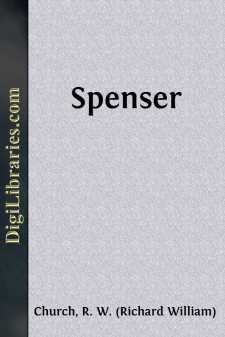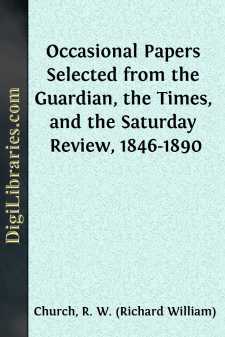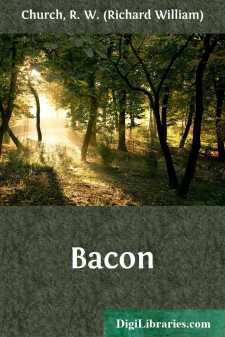Categories
- Antiques & Collectibles 13
- Architecture 36
- Art 48
- Bibles 22
- Biography & Autobiography 813
- Body, Mind & Spirit 142
- Business & Economics 28
- Children's Books 17
- Children's Fiction 14
- Computers 4
- Cooking 94
- Crafts & Hobbies 4
- Drama 346
- Education 46
- Family & Relationships 57
- Fiction 11829
- Games 19
- Gardening 17
- Health & Fitness 34
- History 1377
- House & Home 1
- Humor 147
- Juvenile Fiction 1873
- Juvenile Nonfiction 202
- Language Arts & Disciplines 88
- Law 16
- Literary Collections 686
- Literary Criticism 179
- Mathematics 13
- Medical 41
- Music 40
- Nature 179
- Non-Classifiable 1768
- Performing Arts 7
- Periodicals 1453
- Philosophy 64
- Photography 2
- Poetry 896
- Political Science 203
- Psychology 42
- Reference 154
- Religion 513
- Science 126
- Self-Help 84
- Social Science 81
- Sports & Recreation 34
- Study Aids 3
- Technology & Engineering 59
- Transportation 23
- Travel 463
- True Crime 29
R. W. (Richard William) Church
Richard William Church (1815–1890) was an English writer, Anglican churchman, and prominent figure in the Oxford Movement, which sought to revive the Catholic elements of the Anglican Church. He is best known for his historical works, including "The Oxford Movement: Twelve Years, 1833–1845" (1891), which provides a detailed account of the religious revival in which he played a role. Church also wrote essays and biographies, notably "Life of St. Anselm" (1870), showcasing his scholarly interests in theology and church history. He served as Dean of St. Paul's Cathedral from 1871 to 1890, where he influenced the spiritual life of the Church of England.
Author's Books:
Sort by:
CHAPTER I. SPENSER'S EARLY LIFE. [1552-1579.] Spenser marks a beginning in English literature. He is the first Englishman who, in that great division of our history which dates from the Reformation, attempted and achieved a poetical work of the highest order. Born about the same time as Hooker (1552-1554), in the middle of that eventful century which began with Henry VIII., and ended with...
more...
I MR. GLADSTONE ON THE ROYAL SUPREMACY[1] [1] Remarks on the Royal Supremacy, as it is Defined by Reason, History, and the Constitution. A Letter to the Lord Bishop of London, by the Right Hon. W.E. Gladstone, M.P. for the University of Oxford. Guardian, 10th July 1850. Mr. Gladstone has not disappointed the confidence of those who have believed of him that when great occasions...
more...
CHAPTER I. EARLY LIFE. The life of Francis Bacon is one which it is a pain to write or to read. It is the life of a man endowed with as rare a combination of noble gifts as ever was bestowed on a human intellect; the life of one with whom the whole purpose of living and of every day's work was to do great things to enlighten and elevate his race, to enrich it with new powers, to lay up in store...
more...




